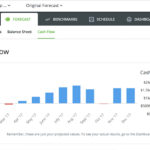Law Firm Cash Flow: Why Clients Pay Late and How to Fix It
Cash flow is the lifeblood of your law firm. It ensures your bills are paid and your clients receive the service they expect.
Yet many firms struggle to manage theirs properly. In fact, an estimated 82% of small businesses, including law firms, fail due to cash flow problems.
Part of the problem is overdue invoices. When clients pay late, you’re left covering expenses from elsewhere. To resolve the problem, you need to understand why invoices are overdue and take a strategic approach to preventing delinquencies in the future.
Here’s why clients pay late and effective strategies you can use to improve your law firm’s cash flow.
Why Clients Pay Late
There are many reasons why clients may pay their invoices late, but here are some of the most common factors:
- Due dates are unclear.
- Your billing is too complicated or confusing.
- You’re not sending invoices in a timely manner.
- They have to jump through hoops to make payments.
Communication breakdowns can contribute to the problem. If clients don’t know when or how to make payments, they won’t make them.
Understanding the reasons why your individual clients are paying late is the first step in improving your law firm’s cash flow management.
Take the time to analyze your current billing practices and processes to pinpoint bottlenecks or issues that may be keeping your clients from paying their invoices on time.
Strategies for Improving Law Firm Cash Flow Management
After taking an honest look at your invoicing, you can start implementing strategies to improve your cash flow and encourage clients to pay on time.
Send Invoices Promptly
One of the simplest ways to prevent late payments is to send out invoices in a timely manner. As soon as the work is complete, invoices should be sent. In many instances, we recommend billing upfront or at least billing partially upfront. Automation can help with this process. QuickBooks Online, for example, allows you to generate invoices for clients automatically.
Accuracy is equally important here. Hours invoiced can cover a variety of complex work, so invoice mistakes (even small ones) can result in delayed payments and poor cash flow. This is yet another reason to consider automation, which will reduce the risk of billing errors.
Establish Clear Payment Terms and Communicate Them with Your Clients
Does your firm have clear payment terms? More importantly, do you communicate these terms with your clients?
Without clear terms and communication, clients may not know:
- When payments are due
- When late fees will apply
Each invoice you send should include information on:
- Due dates. Set reasonable time frames. Standard payment terms are usually 30 days from the date of the invoice.
- The services provided. Provide clear descriptions so that clients know exactly what they’re being billed for.
- Terms of payment. Make sure clients know when and how payments are made. Include your accepted payment methods, fees for late payments and other terms.
It’s also good practice to include a contact person to address questions or issues with invoices.
Clear communication and payment terms can go a long way in preventing late payments.
Offer Flexible and Convenient Payment Options
Making a payment shouldn’t be complicated. Make the process as easy as possible for your clients.
Ideally, you should have a payment portal that clients can use to pay their bills. If you want to make it as easy as possible, consider accepting multiple payment options such as:
- Credit/debit cards
- Apple/Google Pay
- Striple
- Amex
- PayPal or Wise
- Bank wires
The simpler and more convenient your payment options, the more likely clients will pay on time.
Follow Up On Overdue Invoices
When invoices are overdue, you may need to have difficult conversations. Naturally, you don’t want to lose clients, but late payments can lead to lost revenue, cash flow problems and in worst-case scenarios, insolvency.
In many cases, following up and sending out reminders on overdue invoices is all it takes to get clients to make payments.
According to a recent study, 29% of past-due clients simply forgot to make their payments. A simple reminder can put your firm back at the top of their mind and ensure your invoices are paid.
When following up, make sure that you’re:
- Being quick about it. The sooner you reach out, the better your chances of success.
- Remaining professional. Be respectful and courteous when reaching out to clients about their invoices.
Consider alternatives in cases where clients simply cannot pay. For example, you might come to an agreement on a payment plan. If you’re going this route, make sure all terms are clear and both parties (your firm and the client) are signing an agreement.
The Takeaway
Overdue invoices can negatively impact your law firm’s cash flow. But making simple changes to your billing practices and setting clear payment terms can help prevent this issue.
Take some time to analyze your billing processes honestly and use the tips above to minimize the risk of late payments and improve your cash flow along the way.
To learn more about invoice automation or how we can help you with your accounting needs, schedule a consultation now!










